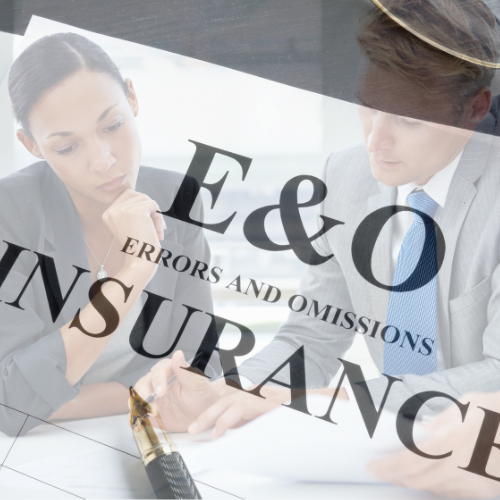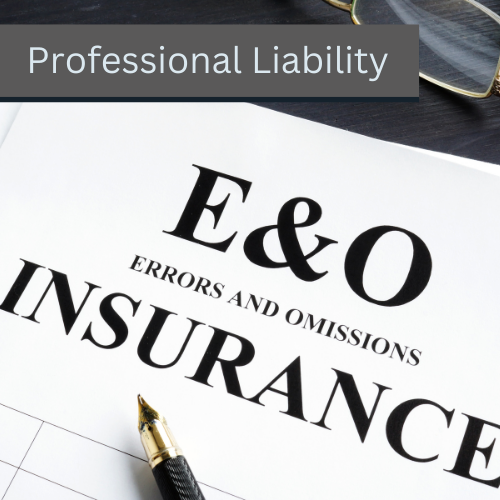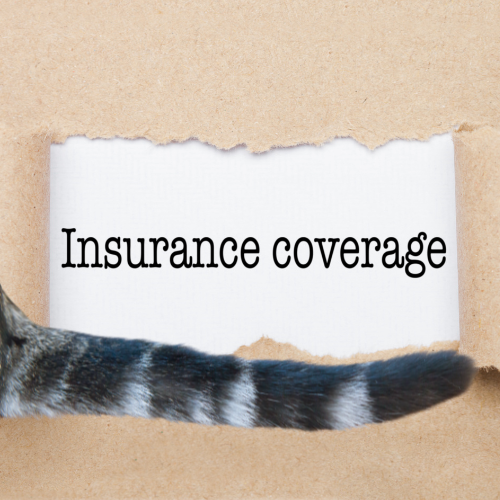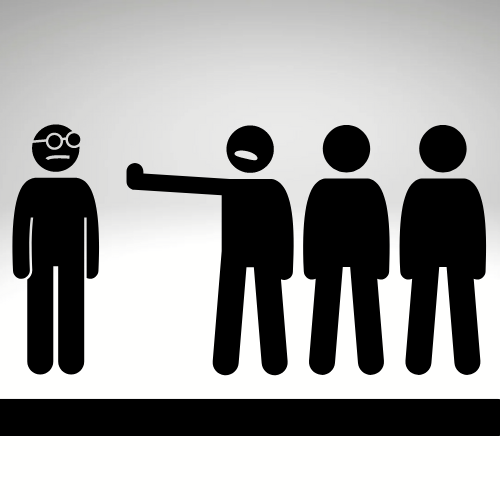
What You Need to Know
Understanding Unique Business Insurance Needs
Every business has its own unique risks. Some industries, especially those that provide specialized services, require insurance that goes beyond the scope of general liability coverage.

Professional Liability Insurance is essential for protecting businesses against claims arising from the services they provide.
While other policies exclude professional errors, this insurance covers those critical gaps.
What is Professional Liability Insurance?
Professional Liability Insurance, also known as Errors and Omissions (E&O) or Malpractice Insurance, provides protection against claims of negligence, mistakes, or failure to deliver services as expected.
Unlike general liability insurance, which covers physical injuries and property damage, professional liability focuses on financial losses caused by professional errors.
This coverage is vital for anyone in a service-based business, as it protects against lawsuits that could arise from providing professional services or advice.

Who Needs Professional Liability Insurance?
Businesses across various industries need Professional Liability Insurance, especially those where clients rely on expertise and advice. Some of the most common professionals who benefit from this coverage include:
- Medical professionals such as doctors, dentists, and chiropractors (covered by medical malpractice insurance).
- Lawyers, accountants, and financial advisors who may face claims related to errors in their work.
- Architects and engineers who design structures that must meet precise safety standards.
- Insurance agents and real estate professionals who offer advice that can affect financial decisions.
- Consultants and IT professionals whose services can impact a client’s operations or security.
Types of Professional Liability Insurance
There are different types of Professional Liability Insurance depending on the industry:
1. Medical Malpractice Insurance
Medical malpractice insurance is essential for medical professionals. It covers legal claims resulting from patient injuries due to errors in treatment, misdiagnosis, or other healthcare-related issues.
2. Errors and Omissions (E&O) Insurance
E&O insurance is designed for professionals who provide services, advice, or design work. It protects against claims of negligence, mistakes, or failure to perform a service.
Common for professionals such as insurance agents, accountants, architects, engineers, and consultants.
3. Directors and Officers (D&O) Insurance
D&O insurance protects corporate leaders from claims related to their decisions in managing the company.
It’s critical for public and private companies, nonprofits, and startups, as directors and officers can be personally sued for mismanagement, breach of fiduciary duty, or failure to comply with regulations.
4. Fiduciary Liability Insurance
Fiduciary liability insurance covers those who manage employee benefit plans against claims of mismanagement.
This coverage is crucial for compliance with the Employee Retirement Income Security Act (ERISA), which governs employer-sponsored retirement plans.
Claims-Made vs. Occurrence Policies
Professional liability policies are typically written on a claims-made basis rather than an occurrence basis.
Claims-Made Policies
A claims-made policy covers claims that are made during the policy period, regardless of when the incident occurred. This type of coverage is most common in professional liability policies.
- Example: If a claim is filed in 2024 for a mistake that happened in 2022, it will only be covered if the policy is active when the claim is made.
Occurrence Policies
In contrast, occurrence policies cover incidents that happen during the policy period, even if the claim is filed after the policy expires.
These policies are less common in professional liability coverage but might be available for certain professions.
Key Features of Professional Liability Insurance
1. Tail Coverage (Extended Reporting Period)

Tail coverage allows professionals to file claims even after the policy has ended, covering incidents that occurred during the policy period but were not discovered until later.
2. Prior Acts Coverage
This covers claims for incidents that occurred before the policy was purchased. It’s crucial when switching insurers, ensuring no gaps in coverage for previous work.
3. Defense Costs
Professional liability insurance generally covers legal defense costs. Some policies include defense costs within the policy limits, while others provide them in addition to the coverage limit, which helps preserve the total amount available for settlements.
4. Cyber Liability

With the increasing threat of cybercrime, many professional liability policies now offer cyber liability coverage as an endorsement.
This covers claims related to data breaches, cyberattacks, or failure to protect sensitive client information.
5. Regulatory Defense Coverage
This covers the costs of defending against investigations or actions by regulatory bodies, an important feature for professionals in highly regulated industries like healthcare and finance.
6. Vicarious Liability
Professional liability insurance can also protect businesses from claims arising from the actions of their employees or subcontractors, covering their mistakes as well.
The Consent to Settle Clause
In some professional liability policies, insurers can settle claims without the policyholder’s consent.
However, some professionals may fear that settling out of court could harm their reputation.

While most policies today don’t require the insured’s consent to settle, some offer a “soft” consent clause, where the insured can refuse settlement but must accept financial responsibility beyond the insurer’s offer.
Exclusions in Professional Liability Insurance

Despite the broad protection offered by professional liability insurance, there are common exclusions to be aware of:
- Intentional acts like fraud, embezzlement, or criminal behavior.
- Bodily injury or property damage (covered under general liability insurance).
- Claims filed before the policy’s retroactive date or after the coverage ends without tail coverage.
- Regulatory fines and penalties that may arise from non-compliance with laws.
These exclusions make it important for professionals to review their policies and consider additional coverage for specific risks, like cyber liability or employment practices liability.
Why Professional Liability Insurance is Essential
Professionals are held to a higher standard of conduct, and mistakes, even minor ones, can lead to significant legal claims.

Without the proper insurance, a lawsuit could result in severe financial strain, damage to reputation, and loss of business.
Examples of Why You Need Professional Liability Insurance:
- An architect designs a building that fails to meet safety standards, leading to costly repairs and a legal battle.
- A lawyer misses a critical filing deadline, resulting in a client losing their case and suing for damages.
- An accountant makes an error in a client’s tax filing, leading to penalties and a lawsuit.
- A doctor is accused of medical malpractice for an incorrect diagnosis that causes harm to a patient.
How to Choose the Right Professional Liability Insurance

To choose the right professional liability policy, businesses should consider:
- The Nature of Services Offered: Different professionals face unique risks, so your coverage should be tailored to your specific industry.
- Policy Limits: Ensure your policy provides adequate protection for potential claims, taking into account both per-claim and aggregate limits.
- Deductibles: Balance the deductible with what you can afford out of pocket in case of a claim.
- Claims Process: Understand the claims process and how quickly you need to report incidents.
- Risk Management Services: Some insurers offer resources like legal consultations and training to help prevent claims.
Tailored Coverage for Unique Professional Risks
At Armor Insurance Agency, we understand that every business and professional faces unique risks.
Professional Liability Insurance is essential for protecting your business from the financial and reputational damages that can arise from lawsuits related to your services.

Whether you’re a healthcare provider, lawyer, accountant, or architect, we can help you find the right policy tailored to your profession’s specific needs.
FAQs
What is the difference between professional liability insurance and general liability insurance?
General liability insurance covers physical injuries and property damage, while professional liability insurance covers claims related to errors or negligence in professional services.
Who needs professional liability insurance?
Professionals such as doctors, lawyers, accountants, consultants, and architects need this insurance to protect against claims of negligence or mistakes in their work.
What is a claims-made policy?
A claims-made policy covers claims made during the policy period, regardless of when the incident occurred, as long as the policy is active when the claim is made.
Does professional liability insurance cover intentional acts?
No, professional liability insurance does not cover intentional acts such as fraud, embezzlement, or criminal behavior.
Can professional liability insurance cover cyber liability?
Yes, many professional liability policies now offer cyber liability coverage to protect against data breaches and cyberattacks.

